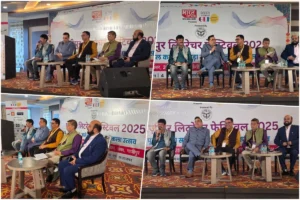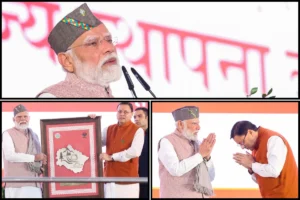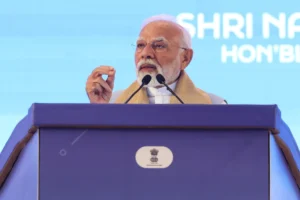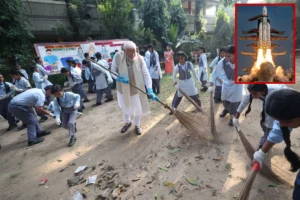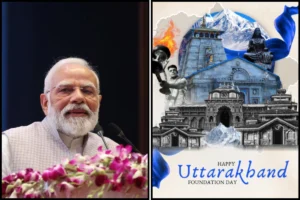
India once again refused to support China’s Belt and Road Initiative (BRI) during the Shanghai Cooperation Organisation (SCO) Summit in Tianjin, standing as the only member state not to endorse the project.
While Belarus, Iran, Kazakhstan, Kyrgyzstan, Pakistan, Russia, Tajikistan, and Uzbekistan reaffirmed their backing for BRI, India upheld its longstanding position, emphasising adherence to international norms.
Led by Prime Minister Narendra Modi, India’s government insists that connectivity projects must respect universally recognised principles such as good governance, transparency, rule of law, and equality.
India has repeatedly expressed concern about the China-Pakistan Economic Corridor (CPEC), a key BRI project that passes through parts of Ladakh and Jammu & Kashmir—territories claimed by India but controlled by Pakistan.
Minister of State for External Affairs Kirti Vardhan Singh highlighted India’s protest to China over the inclusion of CPEC in the BRI and called for an end to these activities that violate India’s sovereignty.
SCO Declaration Supports Global Economic Stability
The Tianjin Declaration acknowledged the SCO’s role in restoring the global economy, stabilising production and supply chains, and fostering sustainable development.
Member states expressed support for reforming global economic governance to create a fair, open, transparent, and inclusive multilateral trading system.
SCO members condemned unilateral economic coercive measures that violate the UN Charter and international law.
The declaration stated that such actions harm international security, disrupt markets, undermine fair competition, and hinder global cooperation towards Sustainable Development Goals.
Member states reaffirmed their commitment to the UN Charter, the SCO Charter, and international legal principles.
Moreover, they emphasised respect for sovereignty, independence, territorial integrity, equality, mutual benefit, non-interference, and the peaceful resolution of disputes as essential to international relations.
The ‘Shanghai Spirit’ of Cooperation
The declaration reiterated adherence to the ‘Shanghai spirit’—based on mutual trust, benefit, consultation, cultural respect, and common development.
Members pledged to deepen cooperation to enhance regional security, stability, and sustainable development, rejecting bloc politics and confrontation.
The SCO Summit took place in Tianjin under China’s presidency. Founded in 2001, the organisation comprises ten member states: China, Russia, India, Kazakhstan, Kyrgyzstan, Tajikistan, Pakistan, Uzbekistan, Iran, and Belarus.
Afghanistan and Mongolia are observers, while 14 countries, including Turkey and Saudi Arabia, hold dialogue partner status.
India’s refusal to endorse the BRI highlights its commitment to a rules-based global order that prioritises sovereignty and fair international cooperation.
This clear stance continues to shape India’s role within the SCO and broader regional diplomacy, underscoring its focus on respecting territorial integrity and promoting equitable partnerships.
Also Read: PM Modi’s Firm Stand On Cross-Border Terrorism At SCO Summit Draws Global Praise
To read more such news, download Bharat Express news apps










